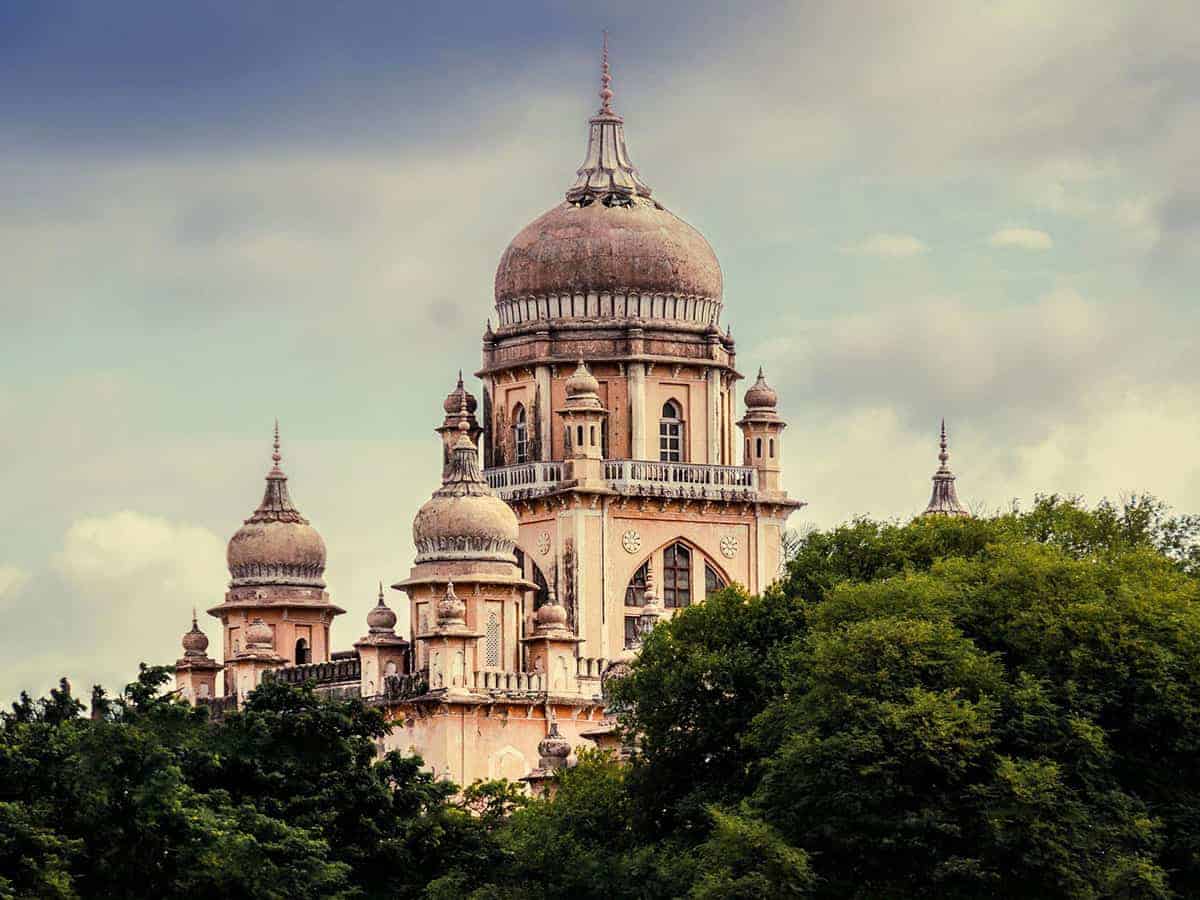Yunus Y. Lasania
Hyderabad: A concerned group of citizens from Hyderabad have launched an online petition to save the Osmania Genera Hospital’s (OGH) old heritage structure from getting demolished. The petition has been created two days after the Telangana State Medical Education director asked OGH authorities to vacate the old building and seal it shut.
The state government’s move has added weight to fears among concerned citizens that the heritage building of OGH may soon be demolished. The petition, which till 4 p.m. had about 850 signatures, has been created on Change.org (link at end of report).
It reads: ‘Media reports indicate the Government of Telangana is moving to demolish the iconic Osmania General Hospital (OGH) which is one of the oldest hospitals in India located in Hyderabad. The Health Minister Etala Rajender has been quoted in a Times of India report, July 23, “The government will raze the building and raise new towers.” Patients in the old building have been moved out and activities are underway to seal the entire building.’
In its petition, the concerned group of citizens appealed to the state government to protect Hyderabad’s heritage and health, by restoring the OGH building. It stated that the OGH is situated on an area of 26.5 acres, of which the old building lies on only one acre. It also added that the hospital’s old building is a “II-B Heritage Building in Hyderabad Metropolitan Development Association (HMDA) Listing and is protected under the Heritage Regulations of HMDA.”
The petition also pointed out that the last Heritage Conservation Committee (HCC) had cleared the proposal of the government for construction of a new block behind the heritage building. It reminded that the new block was to be built on the condition that the heritage structure be restored and construction be done under supervision of a conservation architect and periodic reporting to the HCC.
Apart from being an architectural marvel of Hyderabad, OGH is renowned for its immense contributions to society as a premier medical facility of the city. While the government order on 22 July did not mention anything about demolition, it is widely believed among heritage activists and also doctors who worked at OGH that the state government will dismantle the building as the next step.
“Yesterday water entered into the new Quli Qutb Shah building as well inside the OGH premises. Rain water is still entering other places. They just want a reason to demolish the old building. If water is entering OGH, it has happened due to the laying-off new roads. They (state government) know all these things. KTR is celebrating his birthday today. What is stopping him from distributing food to poor patients at OGH?” questioned a doctor who had worked at OGH, and did not want to be quoted.
It may be recalled that a 2015 INTACH report, submitted after a structural, stability and safety study by experts, summarized that the conservation of the in-patient block or the old heritage building, should be restored based on heritage conservation principles. The study was conducted after a storm of protests against the government’s decision to demolish it then.
The history:
OGH was completed in 1925, after Hyderabad was affected by the bubonic plague around 1911. The city administration then took care of the issue, following which the then Nizam Osman Ali Khan (1911-48) set up the City Improvement Board (CIB) in 1912 to improve Hyderabad’s infrastructure. It was designed by architect Vincent Esch, who also designed the Victoria Memorial in Kolkata.
The OGH’s old building is a fine example of the Osmanian style or Indo Saracenic genre of architecture and is an integral part of Hyderabad’s 20th century riverscape and skyline. The CIB during the reign of Osman Ali Khan had transformed the medieval city into a modern metropolis, complete with infrastructure like the High Court, railway stations, schools and OGH.
Link to Change.org petition: : https://bit.ly/30GRtY5
The writer is a Hyderabad-based journalist who has worked with The New Indian Express, The Hindu and Mint in the past.

